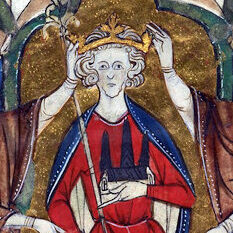1259 - 1260

At the opening of parliament in October, a group calling itself the ‘community of the bachelors of England’ demanded that the barons quit stalling and reform the entire realm, including themselves. The bachelors were probably knights, summoned to represent the counties and clearly disappointed by the lack of progress being made on a local level. An ‘eyre’, or circuit court, had been launched during the initial phase of reform to address grievances against magnates and sheriffs, but the backlog of cases overwhelmed the justiciar, Hugh Bigod. These knights found an unwitting ally in Edward, who was all for the barons getting a taste of their own medicine. Whether shamed or bullied into action, parliament subsequently enacted the Provisions of Westminster, an updated version of the Provisions of Oxford that provided more legislative muscle for local concerns. Edward also swore an oath at this time to aid Simon in the movement. Like his uncle, Edward had wrangled with the crafty earl of Gloucester, the chief impediment to reform, though his reasons were more personal. Clare was one of the more ardent proponents of the treaty with France, which the heir to the throne saw as infringing on his future rights. The treaty itself was finally ready, and toward the end of November Henry crossed over to France to ratify it with Louis. He was expected back by the end of January, for the Provisions had set 2 February for the first of the three parliaments the king was required to hold every year. Citing unfinished business, Henry wrote to Bigod that he was delayed and that no parliament should be held without him. Simon was having none of it, and when his former confederate Bigod refused to defy the king, he and Edward began preparing for armed conflict. Clare began his own campaign, insinuating to Henry that his son was planning to seize the throne. Still, the king lingered on the continent. Not until April did he arrive, at which time he submitted a list of those who attendance in parliament he looked forward to with anticipation. Neither Simon nor Edward was on the list.

John fitz Geoffrey died just before Henry’s departure, leaving the Montforts, Simon and Peter, as the only members of the Seven determined to force a showdown with Henry. The Bigod brothers chose loyalty to the king over the Provisions, while Clare and Peter of Savoy, disturbed by the encroachment of reform into their own domains, were now confirmed royalists.
Another death at this time that affected Simon and Eleanor more was that of Adam Marsh, a Franciscan friar active in learning and scholarship at Oxford. The Montforts depended on him heavily for friendship and spiritual advice, even as he chided her for marital insubordination and him for self-pity. “If you have received the answer of broken friendship and feigned affection,” he wrote to Simon in Latin, “what else are you now suffering than you before expected?”
As eager as he was to get to France, Henry was in no rush to put his seal on the treaty. In Paris he kept the French waiting as he stopped at one church after another to hear mass, until finally Louis had to order all the churches to close. But he made amends by helping to carry the casket of Louis’ son and heir, who died during the state visit, to the grave.